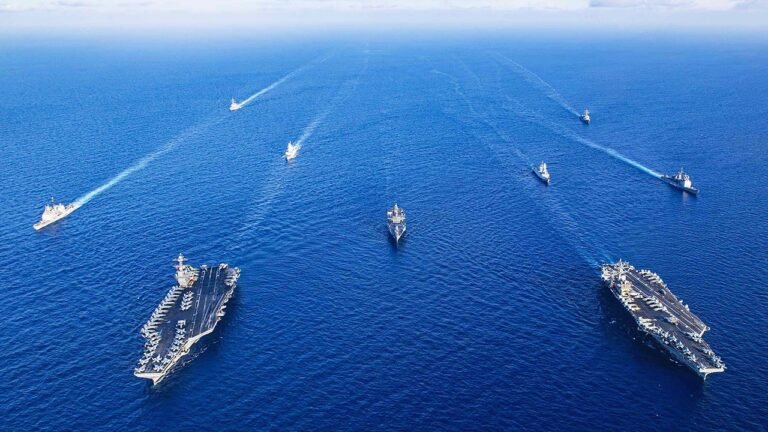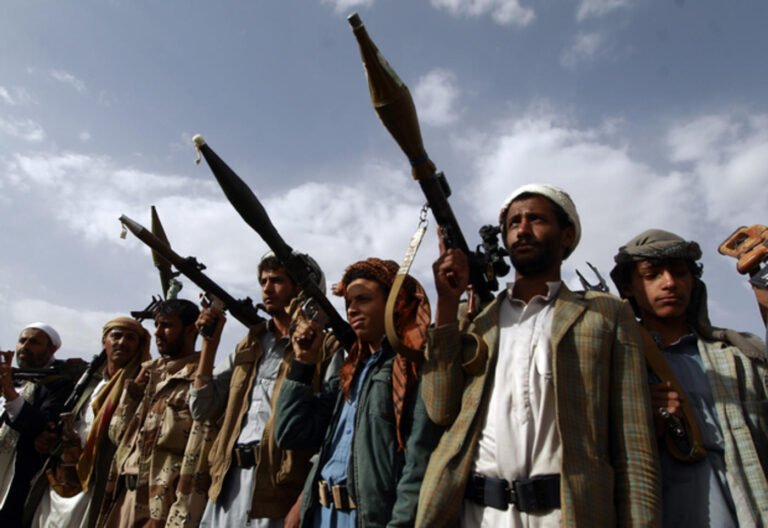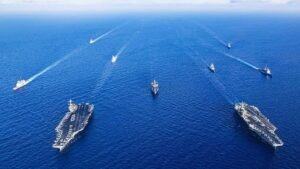
Houthi Attacks and Military Escalation in the Red Sea: What’s at Stake?
The Red Sea, a critical maritime corridor, has become a flashpoint due to the escalating military actions of Yemen’s Houthi rebels. This report examines the recent events, the implications for global shipping, and the broader geopolitical stakes involved.
Introduction
The Red Sea serves as a vital maritime route, connecting the Mediterranean Sea via the Suez Canal to the Indian Ocean through the Bab al-Mandab Strait. This waterway is crucial for global trade, with significant percentages of the world’s oil and goods passing through it. However, recent military escalations by Yemen’s Houthi rebels have heightened tensions and disrupted this critical trade route.
Recent Attacks
Fatal Missile Strike
On Wednesday, a missile attack by Yemen’s Houthi rebels on a commercial ship in the Gulf of Aden resulted in the death of three crew members, forcing the survivors to abandon the vessel (AP News). This incident marks a significant escalation in the Houthis’ campaign, which has been characterized by indiscriminate assaults. These attacks have intensified, particularly in response to the conflict between Israel and Hamas, with the Houthis expressing their support for Palestinian causes (BBC).
Broader Campaign
Since November, the Houthis have launched over 50 attacks on shipping vessels, seizing and sinking ships, which has caused a decline in maritime traffic through the Red Sea and the Gulf of Aden (AP News). These attacks have primarily targeted commercial vessels linked to Israel, further complicating the regional dynamics (BBC).
Geopolitical Implications
International Response
The international community, particularly the United States, has responded to these threats with a mix of diplomatic and military measures. U.S. forces have engaged in airstrike campaigns targeting Houthi positions in Yemen in an attempt to curb these assaults (AP News). Despite these efforts, the Houthis’ capabilities to launch drone and missile attacks remain a significant threat to maritime security in the region (BBC).
Impact on Global Shipping
The Red Sea’s strategic importance cannot be overstated. It is a critical conduit for global shipping, including a substantial portion of the world’s oil supply. The escalation of Houthi attacks poses a severe risk to commercial shipping, potentially leading to increased shipping costs, rerouting of vessels, and broader economic repercussions (Vox).
Regional Stability
The Houthis’ actions are not occurring in isolation but are part of a broader geopolitical struggle involving regional powers such as Iran, which backs the Houthi movement. This conflict further complicates the already volatile situation in the Middle East, with potential spillover effects that could destabilize the region further (Eurasia Review).
Conclusion
The ongoing Houthi attacks and the resultant military escalation in the Red Sea represent a significant threat to global maritime security and regional stability. The potential for these actions to disrupt global trade, particularly in energy supplies, underscores the critical need for a coordinated international response to address and mitigate these threats.
References
- “Red sea attacks: US destroyer shoots down missile launched by Houthi …” AP News, link.
- “Houthi Attacks And Military Escalation In The Red Sea: What’s At Stake …” Eurasia Review, link.
- “Yemen’s Houthi attacks in the Red Sea, explained” Vox, link.
- “Tracking Houthi attacks in the Red Sea” BBC, link.
- “Missile attack by Yemen’s Houthi rebels damages a ship in the Red Sea …” AP News, link.
This detailed examination highlights the multifaceted risks and the critical importance of addressing the ongoing conflict to ensure the security and stability of one of the world’s most important maritime routes.












+ There are no comments
Add yours